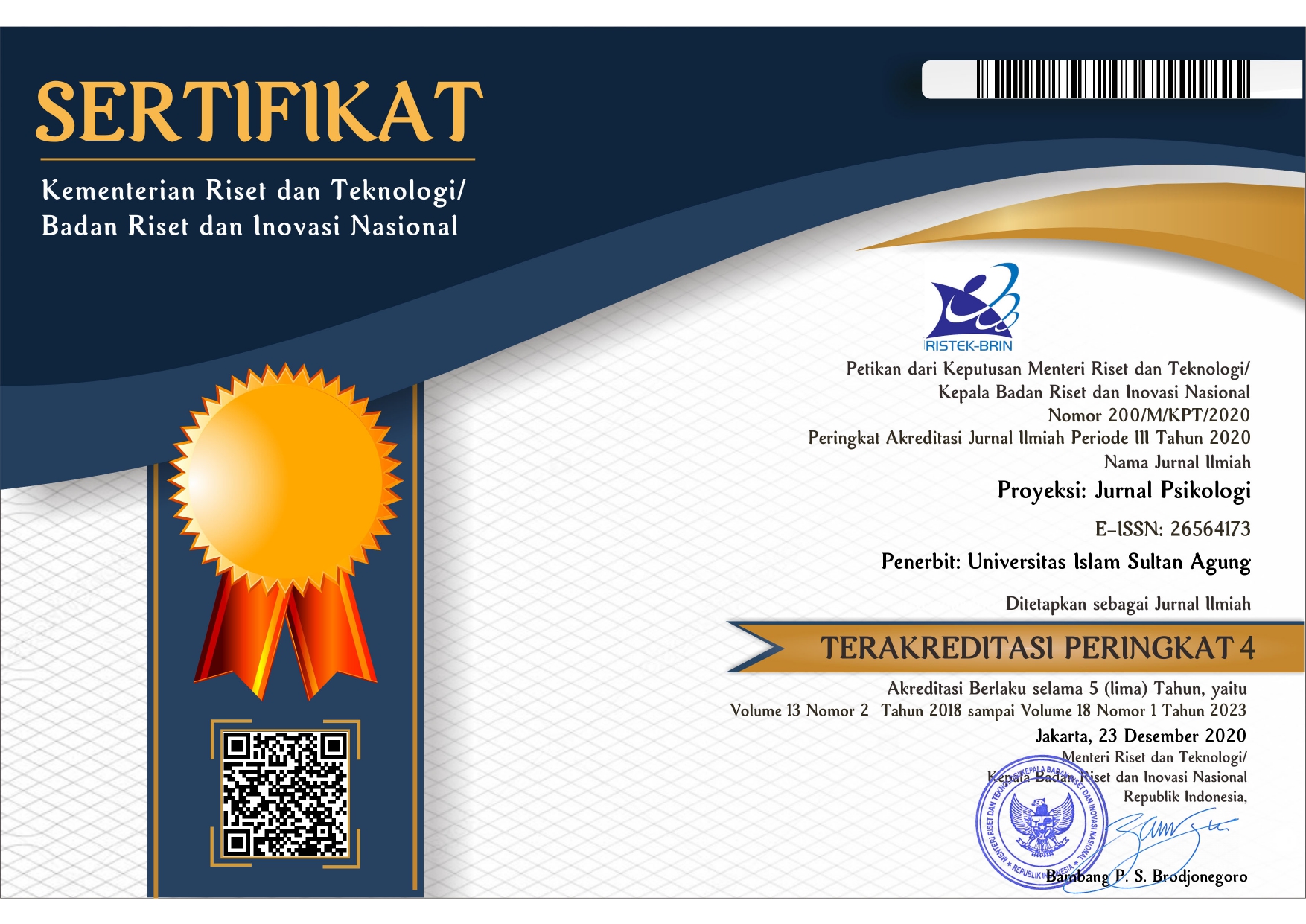Online Counseling to Improve Mental Health among Midwives
Abstract
As one of vital agent in health services, midwives play a central role in promoting well-being of their patients, especially for women and the babies. Unfortunately, the fact that they have poor condition of mental health and well-being can affect their services to patients and also potentially cause their mental health status can be worsen if not handled properly. Based on literature review and prior research in this field, the extension of potential uses of internet has expanded at an astounding rate, that are related to or effected by developing technologies and online counseling has grown as a mental health services in the past 15 or so years.The aim of this research was to evaluate the effectiveness of online counseling to improve mental health used pretest-posttest control group design. Subjects answered the General Health Questionnaire (GHQ-12) and analyzed by t-test SPSS 20. Data analysis showed that there was significant difference between experimental and control group scores. Resulth proved that online counseling was effective to improve mental health. This finding also provide clearly articulated of online counseling that beginning to coalesce and numerous helpful resources to improving mental health of society. Â Â Â Â Â
Keywords
Full Text:
PDFReferences
Baker, K.D., and Ray, M. (2011). Online Counseling: The Good, The Bad, and The Possibilities. Counselling Psychology Quarterly 24: 341-346.
Dowling, M., and Rickwood, D. (2013). Online Counseling and Therapy for Mental Health Problems: A Systematic Review of Individual Synchronous Interventions Using Chat. Journal of Technology in Human Services 31 (1): 1-21.
Finnbogadottir, H., and Dykes, A.K. (2010). Midwives Awareness and Experiences Regarding Domestic Violence among Pregnant Women in Southern Sweden. Journal of Midwifery 28: 181-189.
Finn, J., and Barak, A. (2010). A Descriptive Study of e-Counsellor Attitudes, Ethics, and Practice. Counselling and Psychotherapy Research 10 (4): 268-277.
Jones, C.J., Creedy, D.K., and Gamble, J.A. (2010). Australian Midwives Attitudes towards Care for Women with Emotional Distress. Journal of Midwifery 28: 216-221.
Mcneill, J., Lynn, F., and Alderdice, F. (2012). Public Health Interventions in Midwifery: A Systematic Review of Systematic Reviews. BMC of Public Health 12: 935-955.
Mishna, F., Bogo, M., and Sawyer, J.L. (2015). Cyber Counseling: Iluminating Benefits and Challenges. Clinical Social Worker Journal 43: 169-178.
Richards, D., and Vigano, N. (2013). Online Counseling: A Narrative and Critical Review of the Literature. Journal of Clinical Psychology 69 (9):994-1011.
Ross-Davie, M., Elliot, S., Sakara, A., and Green, L. (2006). A Public Health Role in Perinatal Mental Health: Are Midwives Ready? British Journal of Midwifery 14 (6): 330-334.
Rowan, C., McCourt, C., and Bick, D. (2010). Provision of Perinatal Mental Health Services in Two English Strategic Health Authorities: Views and Perspectives of the Multi-professional Team. Evidence Based Midwifery 8 (3): 98-106.
Sosialita, T.D., Hamidah, H. (2019). Hope-Based Intervention untuk Menurunkan Stres Serta Meningkatkan Harapan dan Subjective Well-being pada Penderita Diabetes Mellitus Tipe 2
DOI: http://dx.doi.org/10.30659/jp.14.2.185-194
Refbacks
- There are currently no refbacks.

Proyeksi by http://jurnal.unissula.ac.id/index.php/proyeksi/ is licensed under a Creative Commons Attribution-ShareAlike 4.0 International License.

